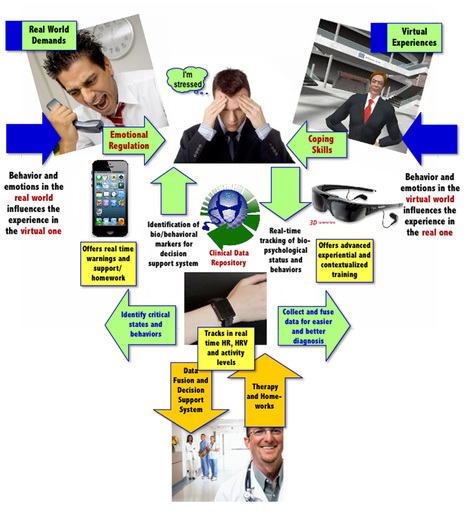Background: The recent convergence between technology and medicine is offering innovative methods and tools for behavioral health care. Among these, an emerging approach is the use of virtual reality (VR) within exposure-based protocols for anxiety disorders, and in particular posttraumatic stress disorder. However, no systematically tested VR protocols are available for the management of psychological stress.
Objective: Our goal was to evaluate the efficacy of a new technological paradigm, Interreality, for the management and prevention of psychological stress. The main feature of Interreality is a twofold link between the virtual and the real world achieved through experiential virtual scenarios (fully controlled by the therapist, used to learn coping skills and improve self-efficacy) with real-time monitoring and support (identifying critical situations and assessing clinical change) using advanced technologies (virtual worlds, wearable biosensors, and smartphones).
Results: Although both treatments were able to significantly reduce perceived stress better than WL, only EG participants reported a significant reduction (EG=12% vs CG=0.5%) in chronic “trait” anxiety. A similar pattern was found for coping skills: both treatments were able to significantly increase most coping skills, but only EG participants reported a significant increase (EG=14% vs CG=0.3%) in the Emotional Support skill.
Conclusions: Our findings provide initial evidence that the Interreality protocol yields better outcomes than the traditionally accepted gold standard for psychological stress treatment: CBT. Consequently, these findings constitute a sound foundation and rationale for the importance of continuing future research in technology-enhanced protocols for psychological stress management.
more at http://www.jmir.org/2014/7/e167/



 Your new post is loading...
Your new post is loading...







